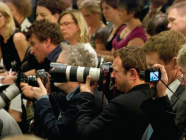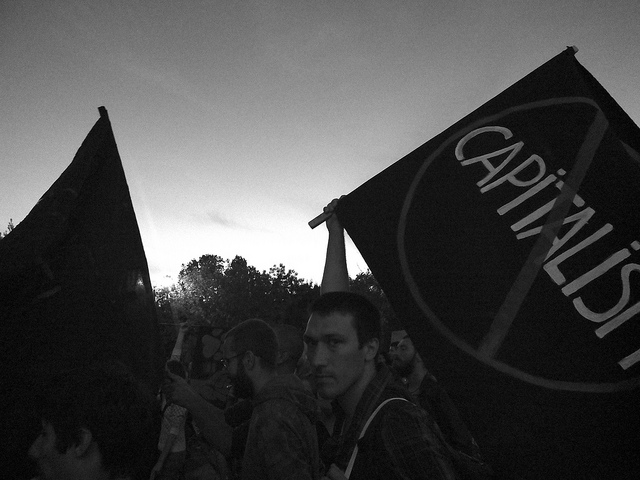Considering the entire collection of books Laufer has written so far, this anthology seems like the exception to his rule. What distinguishes his books and radio shows from your ordinary brand of journalism is a wild determination to go against the grain, combined (in a typical American fashion), with a curiosity that is remarkably prejudice-free. In his work, Laufer is mainly interested in society’s outsiders and underdogs – in stories that are very much not your everyday variety.
One of his early projects, though it remained unfinished and unpublished, hints at his ambitions. As a Fellow of the Robert Bosch Foundation, Laufer was invited to Germany shortly before the fall of the Berlin Wall. Much to the dismay of the foundation’s members, the U.S. journalist investigated the journeys of Germans who – in total contrast to the general trend – had chosen to move from Western to Eastern Germany. One of Laufer’s later books, Exodus to Berlin, features a variation of this theme, as it deals with Jews who decided, after the Holocaust, to return to their native Germany, or migrated from Eastern Europe to the newly founded Federal Republic of Germany (2). In all, Laufer has published over a dozen different titles. But while his range of topic is wide indeed, his body of work reveals that the author has always remained true to himself. In one book, he investigates the fate of U.S. troops who, during their deployment in Iraq, suffered from a crisis of conscience and ultimately quit the service (3). In another, he describes the Bush administration’s construction of a wall along the Southern U.S. border – every bit as disgraceful as Ulbricht’s “socialist rampart” dividing Berlin from 1961 onwards. In yet another book, Laufer discusses the numerous legal and illegal Mexican immigrants, highlighting the absurd social consequences America’s excessive need for security forces upon those who would like to cross the Southern U.S. border (4). Laufer’s investigative curiosity is not so much directed at exposing scandal or unmasking corrupt politicians – he is not a “muckraker” in the traditional sense of the word (which is how investigative reporters in the U.S. continue to define themselves). Instead, he focuses on those who are affected by the wrongdoings of the higher-ups – the people who live on the fringe of society, those who are swimming against the tide. Documenting what these outsiders are going through lies at the heart of Laufer’s journalistic programme, which is completely at odds with the commercialism and professional cynicism that have become the hallmarks of modern journalism.
As an expert in talk radio, Laufer has immortalised himself in yet another book (5), which has even been translated into Chinese. During the 1990s, he tried to turn talk radio into a hit export in Europe, but neither in the Netherlands nor Berlin has the experiment been successful. Ultimately, Laufer assumes it might have something to do with the fact that people, specifically in Germany, are reluctant to expose themselves by voicing their private opinions in public. Conversely, in the U.S. talk radio is a unique success story and those who know the scene continue to wonder how the genre can be dominated by right-wing populists. Radio hosts such as Rush Limbaugh and Michael Savage, both ultraconservative rabble-rousers, continue to attract huge audiences all over the country.
Laufer, who for years has been trying to be something of a left-liberal counterweight to these two (and others of their kind), is busy giving talks on “why right-wing rhetoric and ranting dominate U.S. talk radio,” but neglects to provide a clear answer. While Limbaugh just signed a record-breaking contract that not only allows him to continue inflicting his radio demagogy on the nation (also earning him $38 million a year), Laufer hardly gets by without some serious self-exploitation.
How unjust can the world be?
One of few journalists continuing to devote attention to detail – despite the fact that others have stopped scrutinizing – Laufer’s “motivation,” he says, is “the chance to promote social change, to influence political decisions, to get to know other people and cultures,” and “to savour the diversity and beauty of life.” A lust for life and an almost compulsive curiosity are fused in Laufer, making him a rare breed among the Lefts and Greens.
Laufer compares the current situation in the U.S. at the end of the Bush era with the way things stood in Europe at the end of the Cold War, a time rife with paranoia before the Berlin Wall came down. An untiring educator, Laufer continues fighting with his words to encourage a delusion-free America. His next “big” project focuses on butterflies.
However, those who think that it is about abandoning oneself to the lightness of being should think again: the project deals with the lucrative smuggling of protected and endangered butterfly species from Nicaragua. Peter Laufer, like no one else, is busy shedding light on society’s fringes and it seems he is hell-bent on gaining a few more radical experiences.
Originally published in Neue Zürcher Zeitung, November 11, 2008
(1) Hope is a Tattered Flag. Voices of Reason and Change for the Post-Bush Era, PoliPointPress, Sausalito 2008
(2) Exodus to Berlin: The Return of the Jews to Germany, Ivan R. Dee,
Chicago, 2003
(3) Mission Rejected: U.S. Soldiers Who Say No to Iraq, Chelsea Green Publishing, 2006
(4) Wetback Nation: The Case for Opening the Mexican Border, Ivan R. Dee,
Chicago, 2004
(5) Inside Talk Radio: America’s Voice or Just Hot Air? Birch Lane Press,
New York, 1995
 U.S. journalist Peter Laufer continues to go against the grain.
U.S. journalist Peter Laufer continues to go against the grain.













































